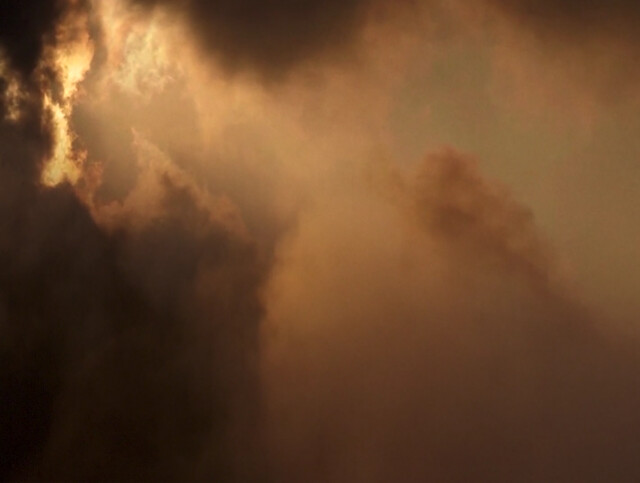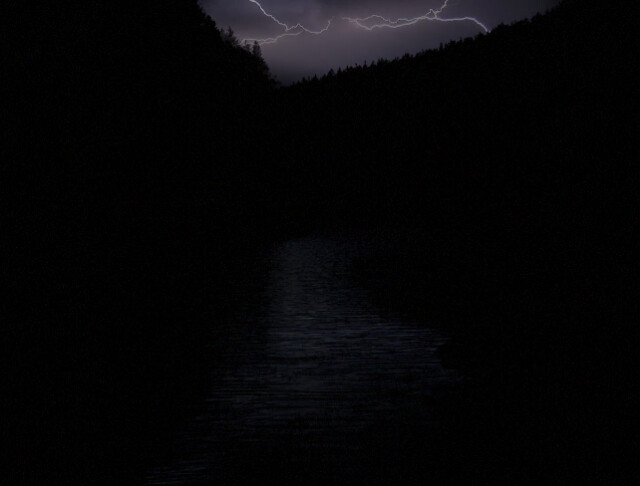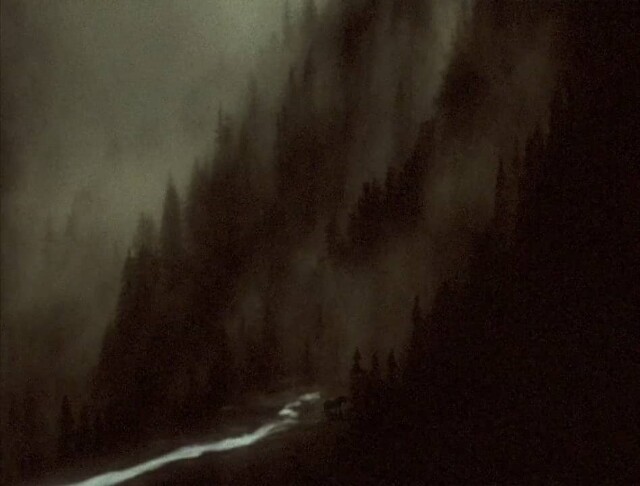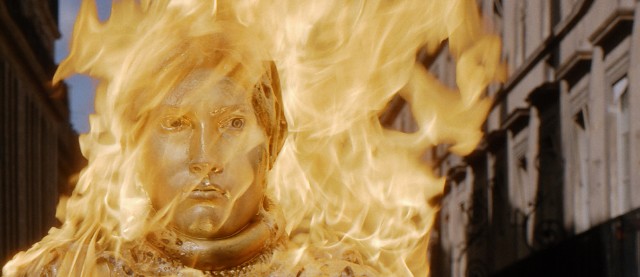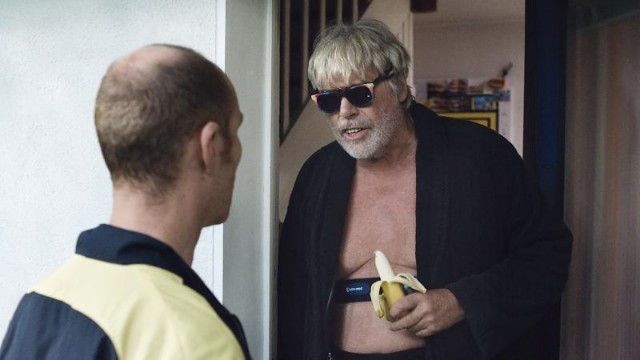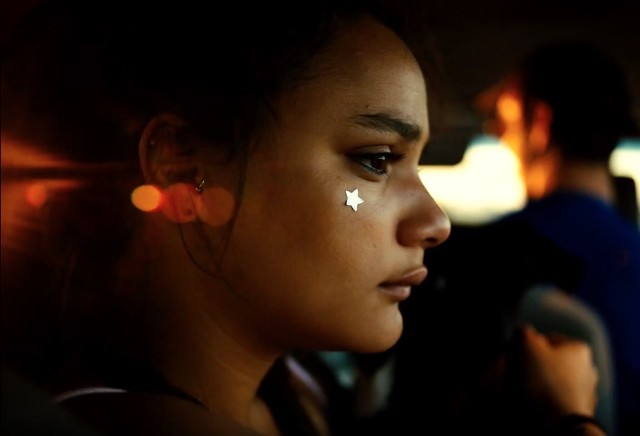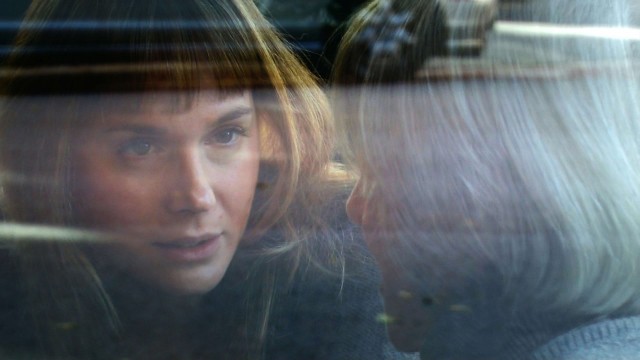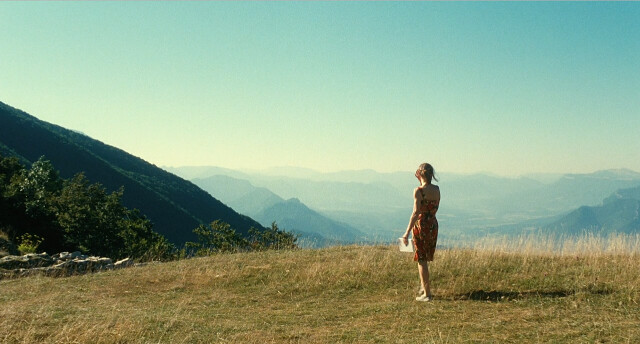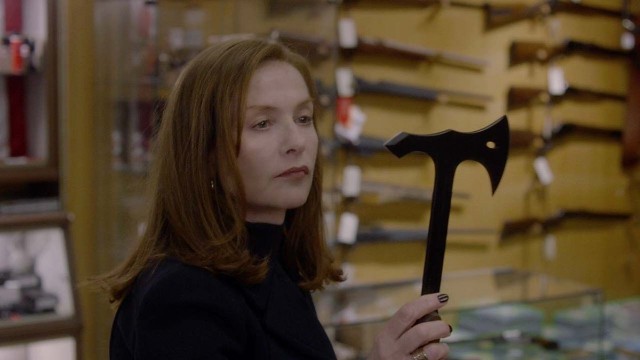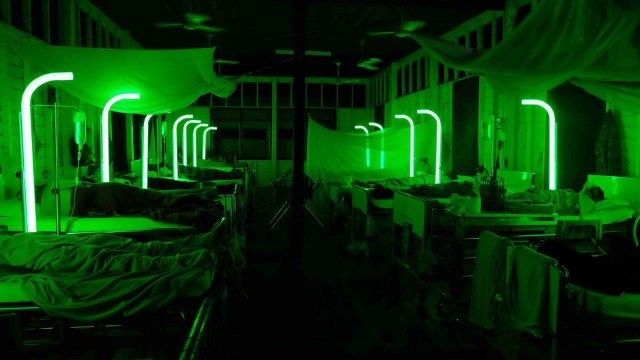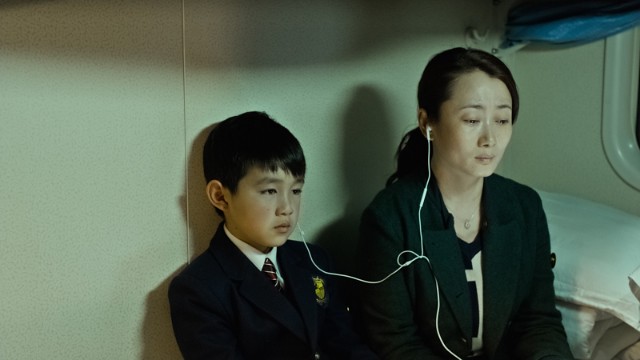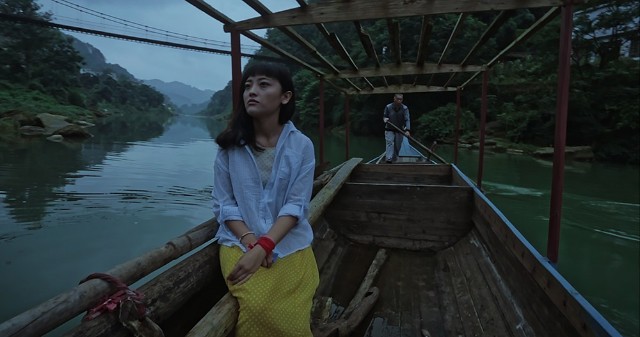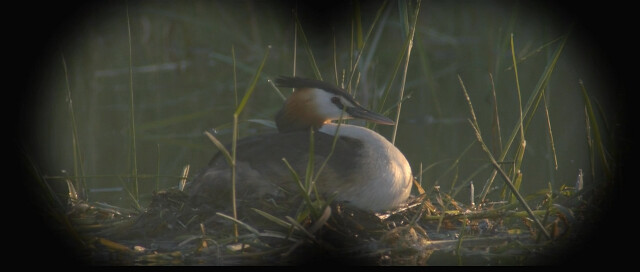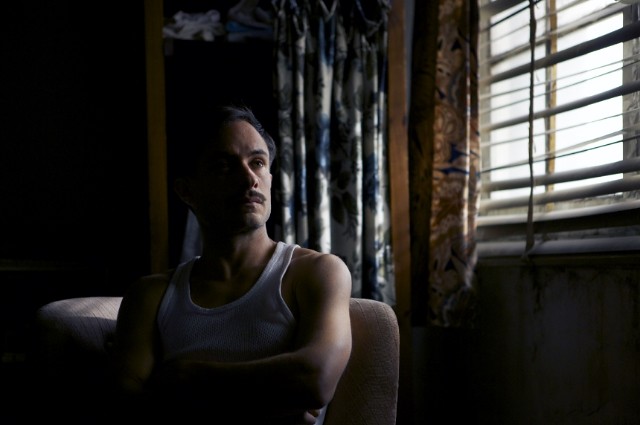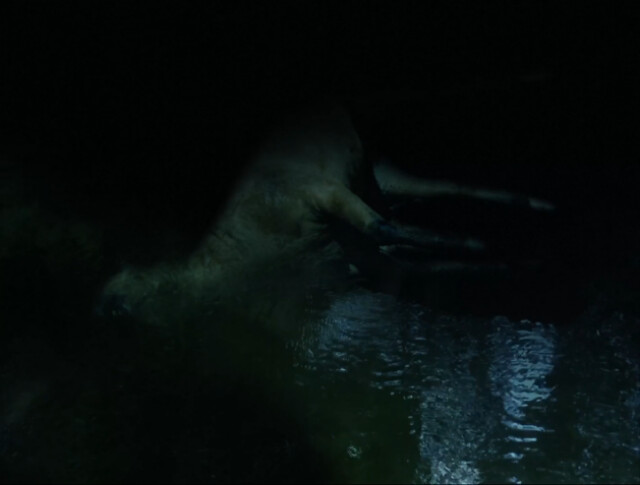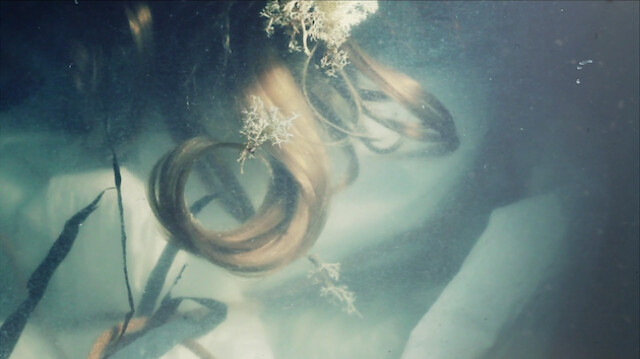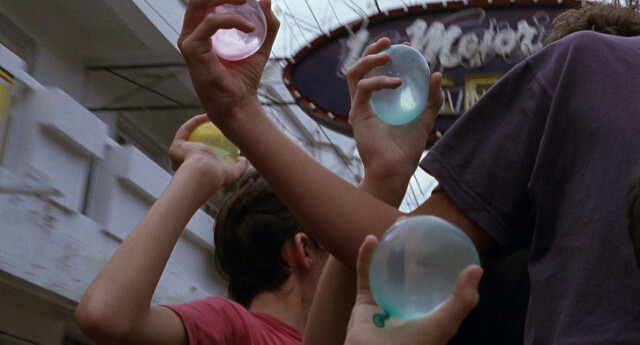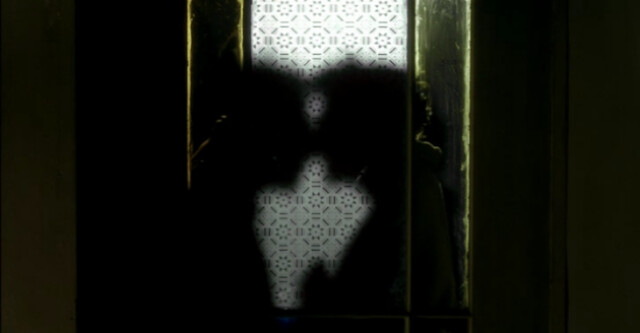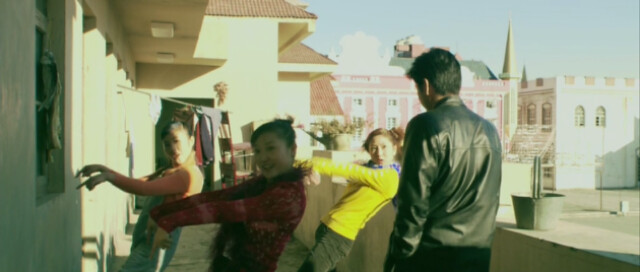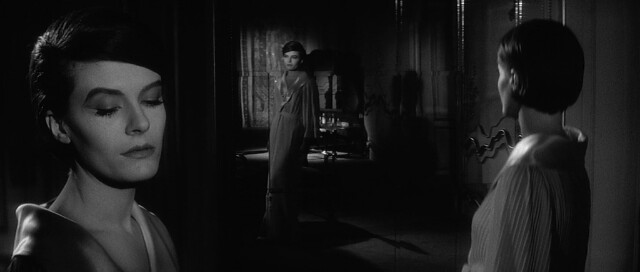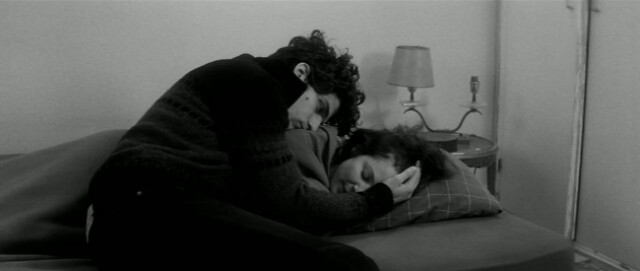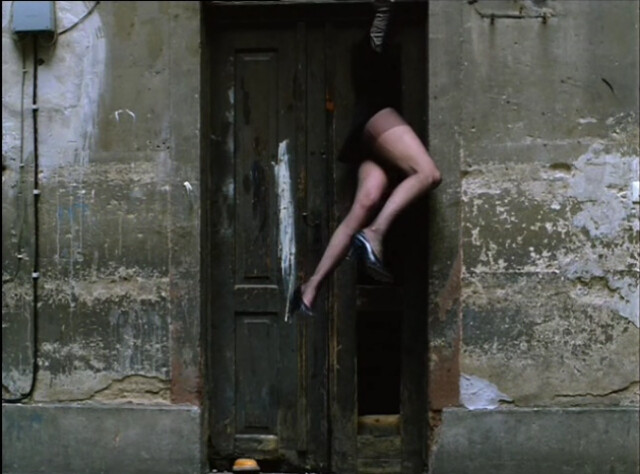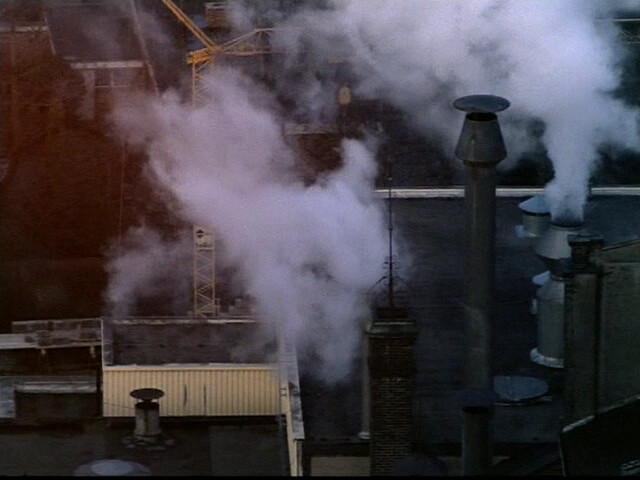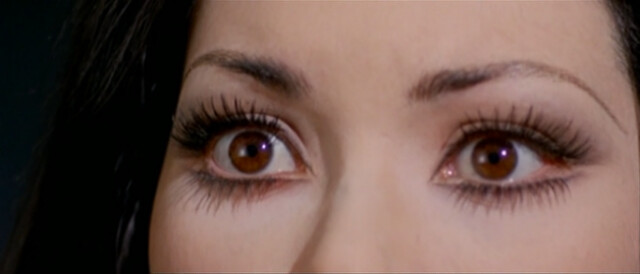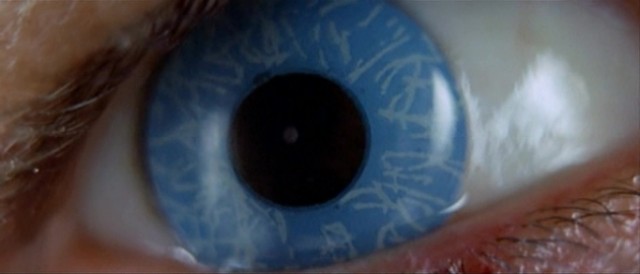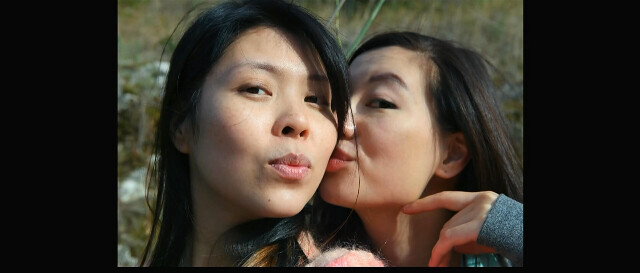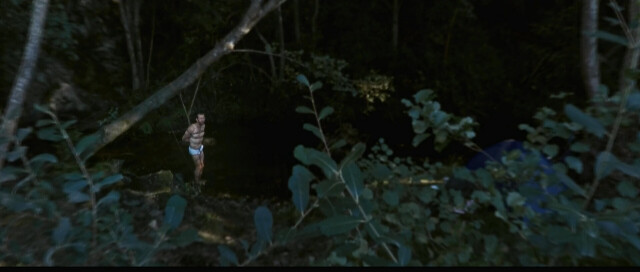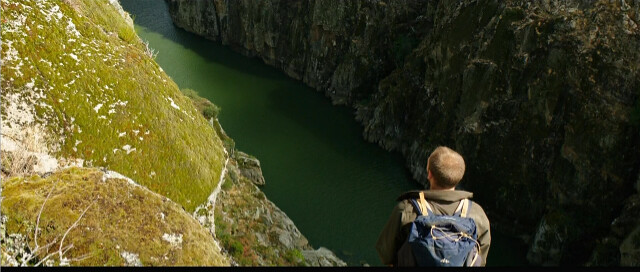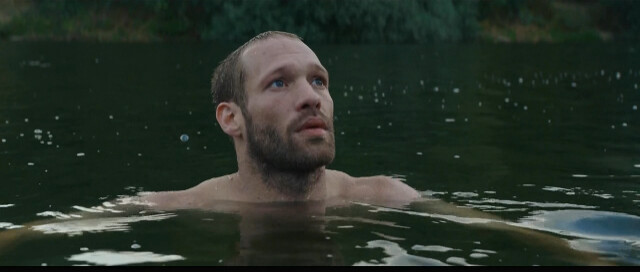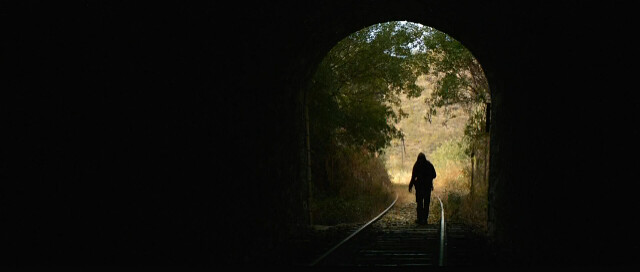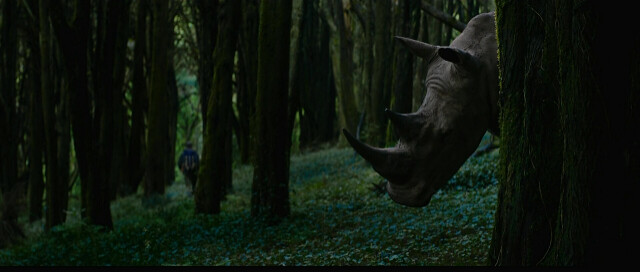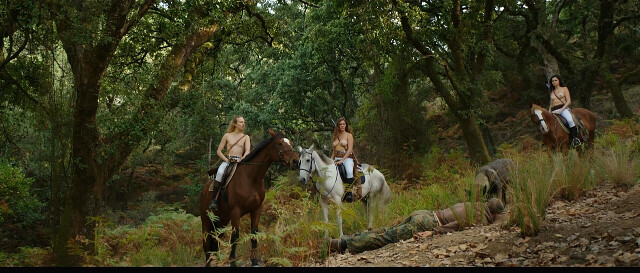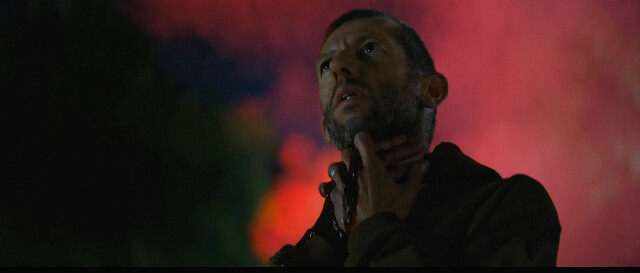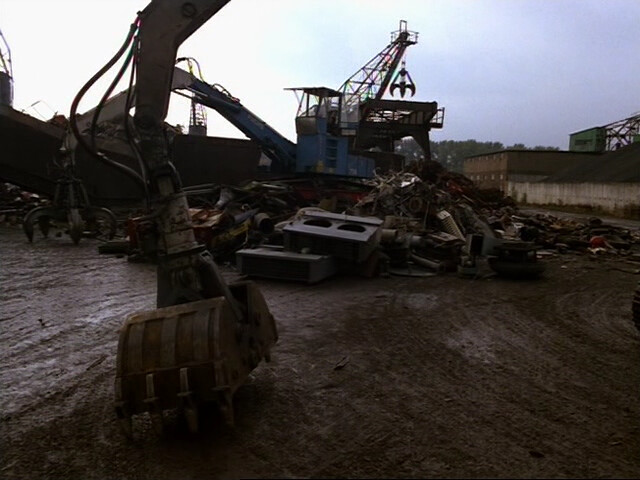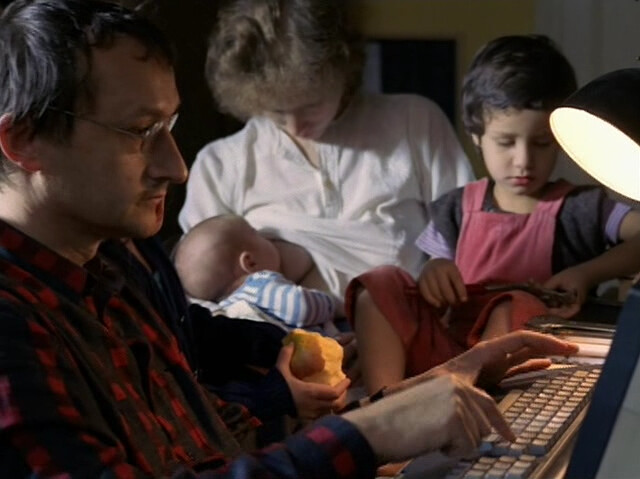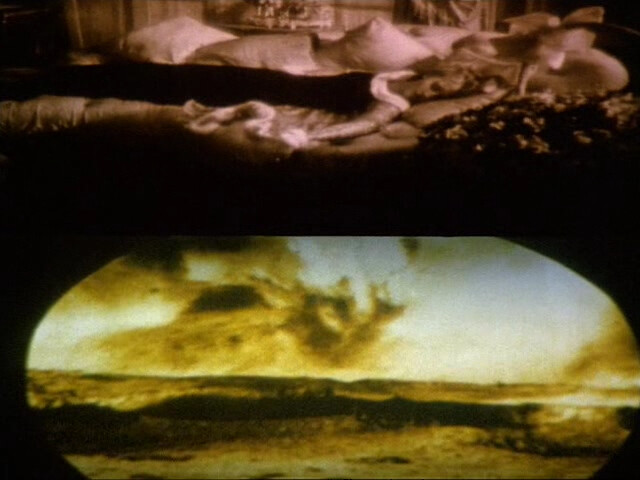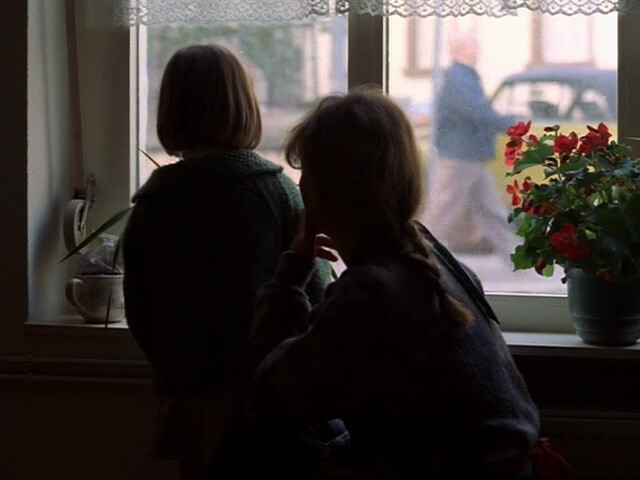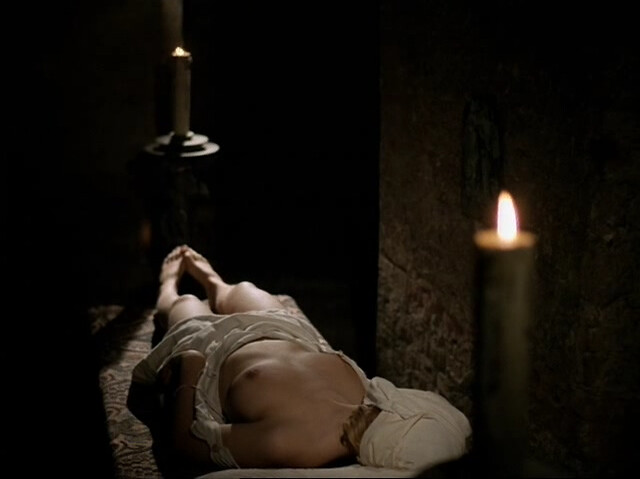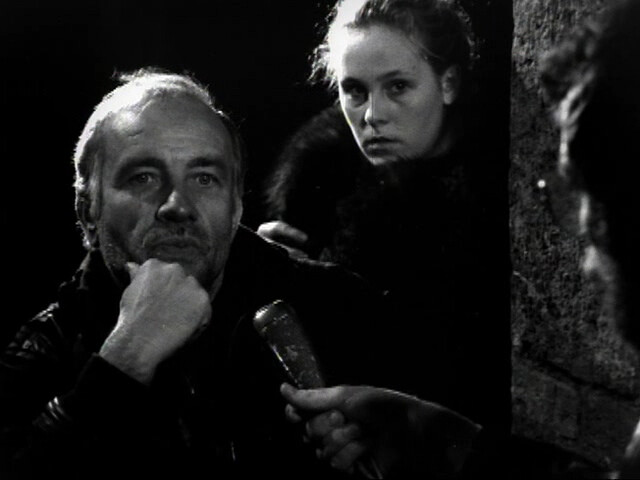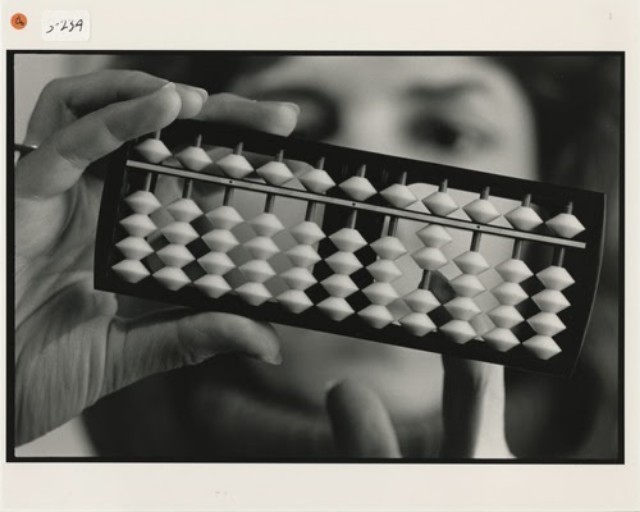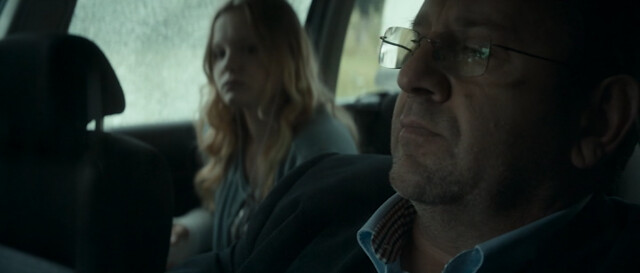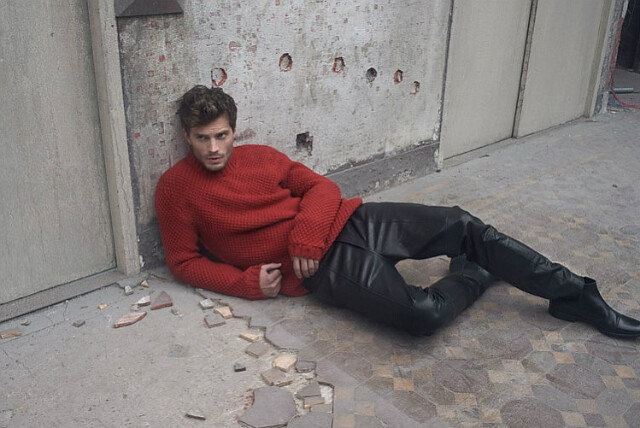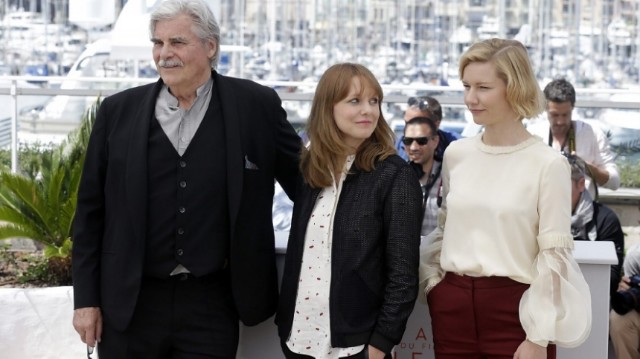
Toni Erdmann, a German dramedy about father-daughter relationship that won rave reviews at Cannes this year is coming out in theaters on Christmas day here in the States. This exceptionally written and acted film is director Maren Ade's third feature. It's a perfect holiday movie, packed with full of surprises and uproariously funny moments. I've never had a this much fun at the movies in a long time. It is definitely my favorite film of the year.
I had a pleasure of talking to three principals from the film- writer/director Maren Ade (Everyone Else), Actress Sandra Hüller (Requiem) and Peter Simonischek (October, November) when they were in town for New York Film Fest this October. They were a raucous team- speaking over one another and finishing each other's sentences. There lively demeanor, comradery and bad jokes filled the cold hotel room in Upper Eastside with laughter and joy.
My first question is for Maren. It’s been quite a while since your last film. Everyone Else/Alle Anderen came out in 2008. How come it took a long time for you to do another film?
Maren Ade: I didn’t spent all of the time doing Toni Erdmann, but let’s say about 5 years or so. It took a while to write it and to research it. It’s also pretty long. And I became a mother and had two children in between. I know it’s actually it’s not a good excuse. (laughs)
But I really worked a lot for this. It’s just a film that had so many different topics…for me it was a big luxury because I never had to leave a certain phase of happiness doing it. I mean, only thing that would bother me sometimes is that it’s ‘always the same thing’ over and over. It takes time to shoot and edit and do all these different things but at the end, preparing for Cannes, I couldn’t even look at it anymore.
How long was the process for you guys?
Sandra Hüller: About a year.
Peter Simonischek: Yeah about a year, maybe a little longer.
MA: Yeah we started casting in May and we started shooting in June the next year.
It’s funny because from my limited knowledge of both of your work, you’ve done some serious stuff. I’ve seen October, November with you Peter and of course, Requiem with you Sandra. So it was a complete surprise for me to see you in very comedic performances.
PS: I’m more of a theater actor. I don’t have an impressive film career per se. I didn’t do horrible, shitty things--
(Sandra and Maren start to laugh)
But I did things like TV series 20 years ago. The thing is, there are not many opportunities - there are not many good roles or directors…and everything must fit. In a small country like Austria, there are not many opportunities…
MA: But you did comedies in theater, no?
PS: Yes.
SH: He is much more familiar to comedy than I am.
PS: Yes, I did a lot of comedies too. When I went in to theater fifty years ago, I never thought of doing TV or film, I just wanted to go on stage. Maybe I did 5 or 6 good films but the rest is middle measure. Maybe two or three bad ones.
How was the casting process? How did you end up with these two?
MA: It’s a father-daughter dynamics and I believe in casting very much also. I obviously only invite actors who are good first. But often it’s very important how the constellation is, even when two people are just seating next to each other, a story comes in your mind. So sometimes it's really about suitability. Sandra and Peter were the last combination I tried but I knew right away that I would cast. They had different partners before. I was very excited to bring them together. Actually even before you two met, I thought it would be a good constellation.
SH: That’s not what she told me. It took like 3 or 4 weeks.
MA: No.
SH: Yeah yeah, you took a lot of time to decide.
MA: No it was not that long.
SH: Ah ok.
MA: I swear to you it wasn’t more than 3 to 4 days
SH: Let’s not fight.
MA: Ok. Between the first casting and the next one it took some time but--
SH: But not after we got on board--
MA: yeah.
What did you guys first think about the script when you guys first read it?
PS: After I read it, I said, "my god what’s this?"
(everyone laughs)
I thought jeez, this is wonderful and so crazy and so great. It’s so extravagant and out of the ordinary. I was very curious who the writer was. I am at this big theater and others had read the script and then they called me. Everyone was like, “Did you read this?” “Oh god it’s great, let’s do this!”
Everyone who read the script was elec-- how do you say it? Electrified? So I took the invitation for the casting. It’s not usual for my generation of actors doing auditions like that like everyone else because of our age and so on but it was never a problem for me. I had some bad experience in theater working over agreement without auditioning. Horrible. I’ll never do that again.
SH: We also needed to find out whether we could work together.
MA: Yeah that was very important.
SH: Also because it was such a long shoot (3 month) for a German film.
MA: It’s not always clear that two actors who can get along together and what kind of performance can they get out of each other. I mean--
PS: It was the very very first lucky experience for me. You (Maren) and you (Sandra). It was absolutely fantastic. It would’ve been very very sad after the first casting together and then if you said to me ,”I’m sorry Peter but it won’t work”. I was very disciplined with my emotions and said to myself, “she will tell me, maybe or not.”
How about you sandra?
SH: Well… no I wanted to work with Maren for few years. I did an audition for the last film she did but I didn’t get it. But I really wanted to work with her. When I read Toni, I knew it was a good script and really enjoyed it but thought I couldn’t do it. it was too complicated and the whole business world was so strange to me. But then we had a conversation and we started the casting process and then I learned some things about Ines that was really interesting to me. It was a big challenge to shoot such a long time and I was doing theater and I had a child who was three at the time and I know you said it was an excuse but--
MA: I know!
SH: It was a really difficult situation in my private life. So I wasn’t really sure but we found out that we worked very well together and we’d probably have a good time together for three months.
Ines is a very cold and business like. And the things she talks about in business jargons I didn’t really get. Was there a lot of research involved?
SH: Maren did a lot of research. I knew nothing of that world. I’d find it interesting to meet those people of my generation who’d do these things. In the beginning, I’d create a map like you’d do in school with the CEO on top, like a tree. I was never interested in that world before. Now I think I can read the economy section of the newspaper.
(Peter claps loudly, another laughter from everyone)
It was important for me that the film really spends some time in the work environment because it was so important to Ines which is basically her life. We all spend our lifetime with our work and in films it’s often so reduced. Usually it’s boring and hard to find a story there. So it took us a while to find a project I can take over from a consultant that we met and we transformed it to fit the story better. It was necessary for me to have an example that really existed.
Was it difficult for you to play that part of Ines?
SH: Yes it was because it was really far away from my own experiences. You can attach yourself to a character in an emotional way. But almost in every scene she makes decisions that I wouldn’t have made. I’m much more sentimental than she is. I had to learn how to skip some of the impulses I have in the first place. But I liked that. I learned a lot from her. Sometimes it’s best not to do what you feel like to do and sometimes it’s better.
Yeah, I had to read a lot and had to watch some movies about this kind of business. Really. there are some really nice documentaries, like Work Hard Play Hard and stuff, where you can see the same kind of body language that they all have that doesn’t say anything about their personal lives. It’s really crazy but also interesting to find out.
It was interesting to me. For me, the movie is about people putting on some sort of a mask to function in the society: Ines has a very cold façade because she has to present herself like that in that environment in order to survive and Winfried is confronting her with another façade which is snaggle toothed Toni. Because she has a role that she needs to play and it’s not natural, so the father is putting on the mask himself to kind of offset that.
It is interesting that there is also a generational gap that’s going on, not only the German society but in general, that there is a rift between the hard working, go getter type of Ines’s generation and kind of happy go lucky of Winfried generation. I am wondering if that was intentional take on your part?
MA: For me he is a typical post war generation who was very political and who was fighting a lot for human values and raise their children with that in mind. They had a kind of hostile relationship with the generation before them. They believed in the free world, world without borders and also economy without borders. And now it ended up with globalization where rich is really rich and poor's really poor. But he lost Ines to that world that he preached. She has all those values that her dad taught her but she is using it in a different way in her business world. She is independent, she is determined but still curious about other things if she’s given a chance.
For me it was the feeling that I have that in my generation that things became so complicated, we don't know who to blame, who’s responsible and for what. It’s complicated to tell who’s a friend and who’s an enemy- there are so many angles on everything.
It's like the father stands for the system of values that is almost like an island that is slowly sinking. We are not allowed to see things like that anymore. It was much simpler back then.
I don’t want to give an answer to the question. It’s just something I felt when I was writing and reflecting on my thoughts.
It’s not like the father is teaching her how to live but it’s more like father reminding her what’s already inside her - that the fun part is already inside her. I thought the turning point for Ines to show her funny side is not in the Whitney Houston scene (even though that is a fantastic scene) but even way before that when she is having sex with her lover. That her father brought out something in her with the unfortunate pastry incident.
SH: 'The Pastry Incident'. I’m gonna write that down!
I never saw it as teaching. I’m still too close to Ines, I don’t know. But they are fighting with each other actually. It was a challenge for both of them. When they are sitting in the kitchen in the beginning of the film, she asks him, “What are you gonna do with your life, except playing with whoopie cushions?" or whatever. So it was an invitation for him to think about what he wants to do with the rest of his retired life. And he comes up with this character and he can do anything, like a superhero. I don’t know. So It’s not that she is only learning from him. I think it’s both ways.
MA: I think it’s also got to do with deciding what is happening by accident and what is on purpose. His purpose was to be close to his daughter. He was at a dead end and he didn’t know how to communicate with her. So if you had asked Winfried- this is always a question that I ask myself, if I could really get an answer from the character, He would’ve said, “Yeah I didn't know. I just went in the bar and I thought we maybe could talk again and she comes in the limosine and we’ll have some fun with my Ines and that's how it would end.
PS: "The flight was cheap."
MA: "The flight was cheap. I missed the flight back!!" (laughs)
He is also giving that answer at the end. He doesn’t believe in what he did before. He doesn’t even know what he gave her. He doesn’t even understand what the outcome of that naked party was. I mean he still has the feeling that he owes her an answer to that.
Was it difficult for you to play basically two characters?
PS: It was one gig to play two.
MA: Actually you play a bad actor. And that’s a good thing. That's some thing you said during the production that you are playing one character.
PS: Sure. One person. Winfried. He disguise himself as Toni to be funny and risky. It is a very courageous thing to do for a person who is not an actor. Not bad. But not only in the shop where nobody knows him but he acts in front of colleagues of Ines and also in front of her boss. Not bad. "But this is not your daughter." Pfffw.
MA: It was really interesting to direct that because it’s forcusing on what good acting is - is it not real enough or good enough or bad enough, or good-bad acting, you know?
SH: It must’ve been really tough for Peter because if you look at his personal journey- he is Elvis and…everybody else all at the same time. Winfried wasn’t really allowed to do that.
PH: There were a lot of possibilities for sure.
MA: We did go, some times, the full way, really going overboard. And then we would pull back.
I see.
PS: Shopping center (starts to laugh to himself, shaking his head)
MA/SH: Yeah.
SH: In there Peter played very American version of Toni. The Texas version.
(They all laugh)
PS: You see, really, it was a lot of fun.
Why Romania?
MA: Why Romania?
Yeah, why Romania? And did you guys enjoy shooting there?
MA: Umm, yeah it was very nice place and we had very good team there. It suited to the story because there are a lot of multinational companies in Romania. After the end of communism, there was a big sellout and everyone was trying to get something out of the country. I was interested in this hierarchies of German companies in Romania.
**
I don’t want to make a comparison but there is a Romanian movie the is out playing at the festival as well. Bacalaureat/Graduation. I haven’t seen it yet but From what I hear movie also deals with father-daughter relationship.
MA: Yeah I want to see it.
If it was a Hollywood film, it would’ve ended when father and daughter embrace each other in the park.
SH: Yeah tell me how would that look like?
MA: who plays who?
Probably like, the late Robin Williams and I don’t know Kate Mara or someone like that. They would hug and that would be the end of the film. But this doesn’t end that way. It goes on. I found that interesting. Did you want to make a point that the life goes on, that it’s not a big life-changing, revelatory experience and everyone becomes happy and whatnot?
MA: I don’t believe so much in big transformations or 'you have to get over yourself' or something. I mean they are possible but not for a film. The time frame of the film is too small. You know what, this is such an obvious moment to put the credits. I did try it, just as a joke. I knew I would never end a movie like that but just to prove that it is really wrong, I did it. It was so stupid. It would been so disappointing because it’s simply not true.
SH: That’s what its about? It’s about hugging in the park in Bucharest?
MA: I also like that he is really struggling in the (Kukeri) coustume and she doesn’t see that. And he is alone. Because that’s not the end of the story. If it doesn’t end like that, in Hollywood films, they would meet 20 years later.
SH: They are all old and say to each other that they can share the secret then.
Toni Erdmann opens Christmas Day in New York and Los Angeles.
**Got a chance to see Christian Mungiu's Bacalaureat after this interview. It's another great film from Mungiu, sharply observing ordinary Romanians dealing with the country's monstrous bureaucratic system. But it's a very different film than Toni Erdmann. Although the film has a father-daughter relationship, their similarities remains on a very superficial level.

